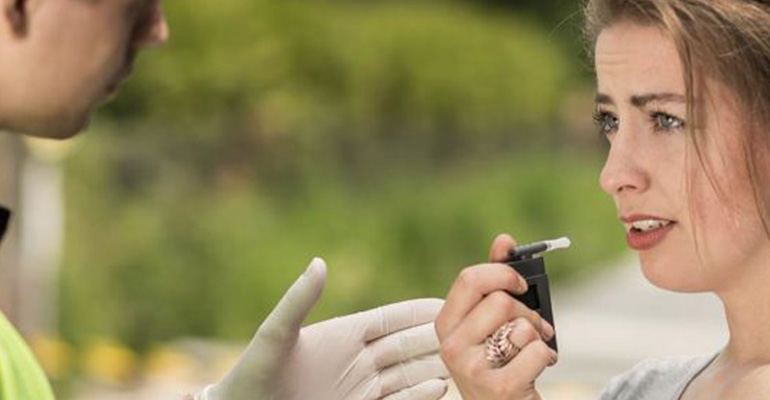Inverness Drink Driving Lawyers & Solicitors
Thanks to the fact that so many people are injured – and cause injury to others – while driving under the influence of alcohol, this offence in particular has received a lot of attention from Scottish Police forces.

Looking for experienced road traffic lawyers in Inverness to assist you with a drink driving case?
At certain points of the year, for example Christmas or during major sporting events, there are campaigns to help people to understand the dangers of driving under the influence, and to try to cut down the number of people who choose to do so. An increase in social responsibility has meant that the number of people convicted of drink driving & drink driving in Inverness has fallen, however there are still many who are on the wrong side of the law in this respect. Recently, the law has been changed, and this means that drivers aren’t allowed to have as much alcohol in either their breath, blood or urine as they may have been able to have in the past.
If you have recently been affected by a drink driving charge, let our Inverness Road Traffic Lawyers help you. Our dedicated inverness solicitors have decades of experience helping many people with driving charges, including dangerous driving charges, speeding charges, mobile phone driving charges, and drink driving charges.
WHAT THE LAW STATES
Section 5(1)(a) Road Traffic Act 1988
It is an offence for a person to drive or attempt to drive a motor vehicle on a road or other public place after consuming so much alcohol that the proportion of it in their breath, blood or urine exceeds the prescribed limit.
Section 5(1)(b) applies to a person who is in charge of a motor vehicle and whose breath, blood or urine alcohol level exceeds the prescribed limit. (It is a defence under Section 5 (1)(b) that there was no likelihood of driving at the time of the alleged offence).
(Section 4 offences include driving under the influence of drink or drugs, and carries with it the same penalty of disqualification)
Drink Driving is a serious offence and carries with it significant penalties.
- There is a minimum period of 1 years disqualification
- If a second offence for drink driving occurs within 10 years, 3 years disqualification is the minimum period of disqualification.
- Failure to provide a specimen of breath at a police office carries the same minimum period of disqualification of 1 year or drink driving ban.
- The legal processes that must be followed by the police in drink driving cases can be complicated and require the attention of a skilled road traffic expert
- There have been a number of significant changes in the law in the last few years.
- There are new prescribed alcohol limits in Scotland. As of December 2014:
2ug in 100ml of breath (formerly 35ug in 100ml of breath)
50mg in 100ml of blood (formerly 80mg in 100ml of blood)
67mg in 100ml of urine (formerly 107mg in 100ml of urine) - There has been the removal of a statutory right to provide an alternative specimen of blood or urine in “borderline” cases(since April 2015, by virtue of the Deregulation Act 2015)
- The device most commonly used by Police Scotland in analysis of breath alcohol is the Intoximeter EC/IR device. A complete understanding of this machine and its limitations is essential for any road traffic expert
- Previous convictions for drink driving(section 5) or failing to cooperate (section 6 or section 7 offences) can lead to consideration of prison sentences.
- Reductions in disqualification periods.
- The Drink Drive Rehabilitation Scheme can be offered to an accused where he/she is convicted of a relevant offence. This typically can reduce a period of disqualification by 25%. The court and the accused must agree to all terms at the time of sentencing
- In defending any prosecution under section 5 Road Traffic Act it is essential that the instructed legal representative understands the following:
the requirements of the police investigating a drink driving allegation including relevant cautions
essential areas of challenge including those of the equipment used by the Police (such as calibration, servicing, incident log history, testing processes, police training with the equipment etc)
available defences such as post incident drinking and accuracy of back calculations often undertaken by the prosecution
current Police Scotland training methods in the use of the relevant devices and areas of weakness - A lot of what was commonly described as ‘loopholes’ in the law over recent years was really a misrepresentation. What was fairly common however was a poorly prepared Crown case and possibly a poorly trained police officer(s) who had conducted much of the investigation.
- Over the past 5-10 years the Crown have tightened up their knowledge on the subject of drink driving fines & prosecutions as have the Police. There are rarely the very basic errors which were common previously.
- There are however many lines of enquiry that a good road traffic lawyer will want to make before deciding on the best course to take.
- If an alcohol reading seems unlikely, or you feel that the police have done something that didn’t seem right at the time in their investigation, or you simply want advice on what is best for you, you should engage a drink driving lawyer from the outset.
- We regularly employ top forensic experts and scientists in their field to examine the case against an accused. This is because science is often at the heart of the prosecution case, and the prosecution often make mistakes or arrive at false assumptions.
================================
STAY ON THE ROAD WITH BLACKWATER ROAD TRAFFIC LAW. FOR A FREE CONSULTATION CALL 01463 548 015

